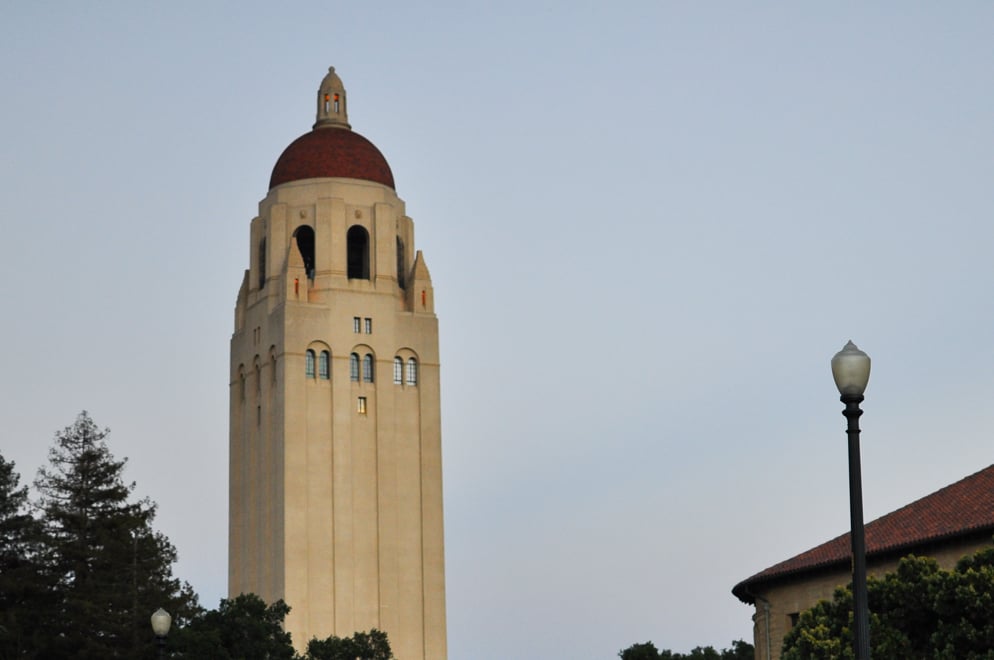An attorney representing Dr. Scott Atlas, a senior fellow at Stanford’s conservative Hoover Institution and White House coronavirus adviser, threatened to file a defamation lawsuit against signatories of a critical open letter that condemned Atlas’ views on COVID-19 if they did not withdraw their claims.
The signatories are standing by their statement and will not retract the letter, according to attorneys for the Stanford faculty members.
More than 100 Stanford physicians and researchers in the fields of epidemiology, infectious disease and health policy released an open letter last week denouncing Atlas’ controversial stances on COVID-19 infection and mitigation strategies and countering them with a list of statements that are supported by the “preponderance of evidence.”
Stanford affiliates wrote that many of Atlas’ “opinions and statements run counter to established science and, by doing so, undermine public-health authorities and the credible science that guides effective public health policy.”
Atlas’ attorney Marc Kasowitz warned in his Wednesday letter to the signatories that “[Y]our letter, which you wrote and sent with no regard for the truth, maliciously defames Dr. Atlas” and demanded that “you immediately issue a press release withdrawing your letter and that you contact every media outlet worldwide that has reported on it to request an immediate correction of the record.” Kasowitz gave the signatories until Friday to retract their claims or face legal action.
Stanford faculty members have retained the law firm of Kaplan Hecker & Fink LLP. In a letter to Kasowitz obtained by The Daily, attorneys Roberta Kaplan and Joshua Matz state that the threat against Stanford affiliates “seeks to distort the public record — and to chill speech by doctors, scientists and public health experts on a matter of pressing national concern — by leveling a baseless accusation that our clients defamed Dr. Atlas.”
“If [Atlas] cannot tolerate science-based criticism of his opinions and statements concerning this public health crisis, then he has no business advising anybody, let alone the President of the United States,” Kaplan and Matz wrote.
The attorneys for the medical school faculty outlined Atlas’ statements on masking, social distancing, asymptomatic testing, infection in children and herd immunity that they assert are “plainly inconsistent” with the the Stanford faculty letter’s asserted facts.
University spokesperson E.J. Miranda told The Daily that “Expression of the widest range of viewpoints is encouraged, free from institutional orthodoxy and from internal or external coercion.”
The University has thus far declined to take a position on Atlas’ views or the letter published by the Stanford faculty. The sole mention of the open letter by University leadership was in an email sent to Academic Council faculty members, where Provost Persis Drell and Faculty Senate Chair Judith Goldstein notified faculty members that the open letter had been inappropriately distributed to members of the Academic Council.
Although the medical school faculty member’s letter was “consistent with the freedom of faculty to voice their opinions,” Drell and Goldstein wrote that this was an “inappropriate use” of the Academic Council email list “that will not happen again.”
The provost and chair added that “it is these disagreements that define us and create an environment that fuels intellectual curiosity.”
Miranda wrote that “when faculty members express a point of view, the viewpoints they express are their own and do not necessarily represent and are not endorsed by Stanford University.”
YouTube removes Hoover Institution video featuring Atlas
Two days after Stanford doctors and scientists published their letter, YouTube notified the Hoover Institution that a June interview featuring Atlas had been removed from the site for violating the company’s policies designed to prevent the spread of misinformation related to the COVID-19 pandemic.
In the video, Atlas expanded on his desire to reopen the economy, cast doubt on universal social distancing measures and described the harm severe lockdowns can have on individuals. Atlas also touched on COVID-19 infection in children and stated that children “do not even transmit the disease.”
YouTube spokesperson Ivy Choi told The Daily that “While YouTube is an open platform designed to welcome robust debate, from the very beginning of this outbreak, we’ve worked to prevent harmful misinformation associated with COVID-19 and have established clear policies.”
“After careful review we removed this video for violating these policies, for disputing existing international and local health authority guidance by falsely stating that a certain age group cannot transmit the virus,” Choi wrote.
In an interview with Fox News, Atlas compared YouTube’s removal of the video to “what is done in third world countries.”
“When you start censoring science you are removing fact, removing the basic way that we decide what is truth in what is not,” Atlas said.
The Hoover Institution did not immediately respond to The Daily’s request for comment.
This article has been corrected to reflect that Provost Persis Drell and Faculty Senate Chair Judith Goldstein sent an email to all Academic Council faculty members, not just University Tenure Line faculty. The Daily regrets this error.
Contact Cameron Ehsan at cehsan ‘at’ stanford.edu.
